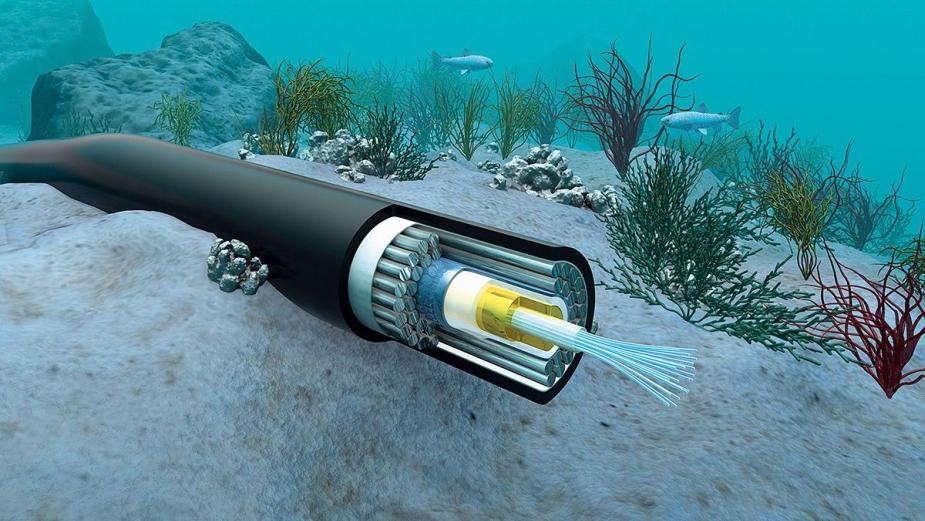Facebook has always been looking for ways to increase the availability and quality of internet access around the world, and of course to the social platform at the same time. Giant optical fibers, which will be distributed between Europe and the United States, will help with this.
Facebook social networking site He wants to significantly increase data transfer rates between Europe and the United States. For this purpose, a cable consisting of 24 pairs of fibers will be used, with the ability to transmit to Half a petabyte per second. If the cable design performs well, this number will represent the fastest data rates of any long-range marine optical cable system. Of course, Facebook will not build this cable itself – the company has an idea, but it does not have the right background for this kind of activity. Instead, the job was outsourced to a company NEC (formerly Nippon Electronic Company), a Japanese international company specializing in this type of technology. NEC says it has built more than 300,000 kilometers of fiber-optic cable so far, “which orbits the Earth nearly eight times.”
Facebook has hired NEC to make a cable linking Europe and the United States, dramatically increasing transmission speeds between continents.
Facebook says the cable will provide 200 times more internet capacity than other transatlantic cables built in the 2000s. It’s unknown when the NEC project will be completed, and there aren’t even any estimates, so we’ll likely have to wait a little longer to check out Facebook’s promises. The idea certainly sounds great, but knowing Facebook, the company is unlikely to be altruistic.
This is not the first way for Facebook to connect the Internet. A few years ago, the social media giant developed a massive solar-powered plane that was supposed to provide high-speed internet to areas with insufficient coverage. The project was finally buried in 2018, and on a much larger scale and with a better implementation of Internet delivery “from the air”, Elon Musk took care of it.
See also:
$.ajax({
url: absolutePath + 'ajax/ajax_feed_forum.php',
type: 'GET',
//data: {article_id: $('#article_' + idik).data('load'), id: $('#article_' + idik).data('id'), idik: idik, prev_article_id:$('#article_' + idik).data('previous') },
async: false,
success: function (data) {
var resp2 = JSON.parse(data);
$('#forum-widget').html(resp2['html'].html);
//console.log(resp2['html'].html)
}
});
$.ajax({
url: absolutePath + 'ajax/ajax_feed_hot_news.php',
type: 'GET',
async: false,
//data: {article_id: $('#article_' + idik).data('load'), id: $('#article_' + idik).data('id'), idik: idik, prev_article_id:$('#article_' + idik).data('previous') },
success: function (data) {
var resp2 = JSON.parse(data);
$('#hot_news_widget').html(resp2['html'].html);
//console.log(resp2['html'].html)
}
});
var isHome="0"
if( isHome == "1" ) {
var fbscript = document.createElement( 'script' );
fbscript.type="text/javascript";
fbscript.src="https://connect.facebook.net/pl_PL/sdk.js#xfbml=1&version=v6.0";
fbscript.crossorigin = "anonymous"
fbscript.defer="";
//$("head").append( fbscript );
}
var adsscript = document.createElement( 'script' );
adsscript.type="text/javascript";
adsscript.src="https://ithardware.pl/js/ads.js";
adsscript.defer="";
$("head").append( adsscript );
if (!document.getElementById('XOMNLnKpBmdW')) {
document.getElementById('dQLBMCicDXvh').style.display = 'block';
}
})
function showSearch() {
// google search
var script = document.createElement( 'script' );
script.type="text/javascript";
script.src="https://cse.google.com/cse.js?cx=012067543731142418014:aakjfjkqsb4";
//script.defer="";
$("head").append( script );
$("#searchBox").modal('show');
/*var dLayerEvent = document.createElement( 'script' );
dLayerEvent.type="text/javascript";
dLayerEvent.text = `window.dataLayer = window.dataLayer || [];
window.dataLayer.push({
'event' : 'search',
'searchTerm' : 'your search term' //this should be dynamically replaced with an actual search query
});`;
$("head").append( dLayerEvent ); */
$(document).on('click', 'button.gsc-search-button',function (e){
//console.log('search-clicked');
var searchPhrase = $('input.gsc-input').val();
//console.log('search', searchPhrase);
window.dataLayer = window.dataLayer || [];
window.dataLayer.push({
'event' : 'search',
'searchTerm' : searchPhrase //this should be dynamically replaced with an actual search query
});
});
/*$(document).on('keypress', 'button.gsc-search-button',function (e){
console.log('search-entered');
var searchPhrase = $('input.gsc-input').val();
console.log('search', searchPhrase);
window.dataLayer = window.dataLayer || [];
window.dataLayer.push({
'event' : 'search',
'searchTerm' : searchPhrase //this should be dynamically replaced with an actual search query
});
});*/
$(document).on('keyup', '#___gcse_0 form.gsc-search-box input.gsc-input', function(e) {
//var searchPhrase = $('input.gsc-input').val();
//console.log('search', searchPhrase);
if(e.which == 13) {
var searchPhrase = $('input.gsc-input').val();
//console.log('search', searchPhrase);
window.dataLayer = window.dataLayer || [];
window.dataLayer.push({
'event' : 'search',
'searchTerm' : searchPhrase //this should be dynamically replaced with an actual search query
});
//alert('You pressed enter!');
}
});
}
“Proud creator. Amateur music junkie. Tv scholar. Web fan. Lifelong alcohol lover. Falls down a lot. Hardcore thinker.”








